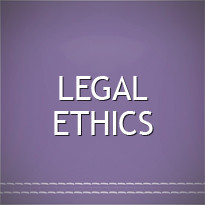B.M. No. 810 – 285 SCRA 59 – Legal Ethics – Lawyer’s Oath
In 1991, a neophyte died during the initiation rites of Lex Talionis Fraternitas in the San Beda College of Law. Arthur Cuevas Jr was one of the persons charged (with murder) for the death of the neophyte. He pleaded guilty and was later convicted to the lesser crime of Reckless Imprudence Resulting in Homicide. Thereafter, Cuevas was granted probation and he continued taking up law. In 1995, he was discharged from probation. In 1996, the Supreme Court allowed Cuevas to take the bar on the condition that in case he will pass, his oath taking will have to be approved by the Supreme Court first. Cuevas did pass the 1996 bar exams and in 1997, he filed a petition before the Supreme Court asking the latter to allow him to take the Lawyer’s Oath.
ISSUE: Whether or not Cuevas may be allowed to take the Lawyer’s Oath.
HELD: Yes. The Supreme Court is duty bound to prevent the entry of undeserving aspirants, as well as to exclude those who have been admitted but have become a disgrace to the profession. Cuevas’ participation in the senseless killing of the neophyte is highly reprehensible however, the Supreme Court is willing to give him a chance considering that Cuevas has received various certifications regarding his good behavior while on probation.
The Supreme Court also stressed that the lawyer’s oath is not a mere formality recited for a few minutes in the glare of flashing cameras and before the presence of select witnesses. As a lawyer, Cuevas shall be expected to abide by the oath strictly and to conduct himself beyond reproach at all times. As a lawyer he will now be in a better position to render legal and other services to the more unfortunate members of society.


